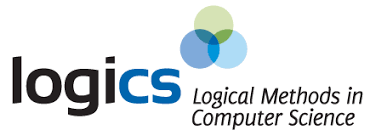Logical Methods in Computer Science (LogiCS)

Logic is a powerful reasoning tool. Originally invented as an aid for sound argumentation, it reached maturity in the form of mathematical logic and analytic philosophy in the early 20th century, with significant contributions from Vienna. We continue this tradition, using logic as a tool that enables computer programs to reason about the world. These reasoning tasks allow a natural classification into two broad areas:
In Databases and Artificial Intelligence, logic is used to model, store, analyze and predict information about the outside world including the Internet. In Verification, logic is used to model, analyze and construct computer programs themselves. The logical and algorithmic questions which underlie both application areas are studied in the area of Computational Logic. In the LogiCS curriculum, all three directions are prominently represented:
In Databases and Artificial Intelligence, logic is used to model, store, analyze and predict information about the outside world including the Internet. In Verification, logic is used to model, analyze and construct computer programs themselves. The logical and algorithmic questions which underlie both application areas are studied in the area of Computational Logic. In the LogiCS curriculum, all three directions are prominently represented:
- Databases and Artificial Intelligence spans a large number of subjects including Answer-Set Programming and Datalog, query languages based on logical concepts (such as SQL, current XML-based languages), optimization of queries, novel database-theoretical methods (like schema mappings, information integration, querying ontologies), logic programming, knowledge representation and reasoning (belief change, abductive reasoning, multi-context systems, inconsistency handling, incomplete knowledge, diagnosis), and AI formalisms (argumentation, planning, preferential reasoning, decision support systems).
- Verification is concerned with logical methods and automated tools for reasoning about the behavior and correctness of complex state-based systems such as software and hardware designs as well as hybrid systems. It ranges from model checking, program analysis and abstraction to new interdisciplinary areas such as fault localization, program repair, program synthesis, and the analysis of biological systems.
- Computational Logic covers theoretical and mathematical foundations such as proof theory (cut elimination, proof mining, interpolants), automated deduction (resolution, refutation, theorem proving), non-classical logics (multi-valued logics, juridical reasoning, deontic logics, modal and temporal logics), computational complexity (complexity analysis, parameterized complexity, decomposition methods) and constraint satisfaction (SAT, QSAT, CSP).
Why join the LogiCS program in Austria?
Our commitment to international and interdisciplinary collaboration is prerequesite for today’s challenges: Computer science has reached a state where many of the basic engineering questions are reasonably well understood. Many of the big open research questions, however, require computers to perform non-trivial reasoning tasks that permeate computer science, other sciences such as medicine, sociology, ecnomy, physics and biology, as well as every-day life. Similar to the role of calculus in the development of physics and engineering, logic is a key discipline in this evolving phase of computer science. LogiCS off ers an international program characterized by the unique combination of disciplines where logical methods decisively impact practical computer science.
The LogiCS faculty comprises 15 renowned researchers with strong records in research, teaching and advising, complemented by 12 associated members who further strengthen the research and teaching activities of the college. Our faculty is complemented by visiting professors as well as frequent guests in both the ARiSE and VCLA talk and seminar series.